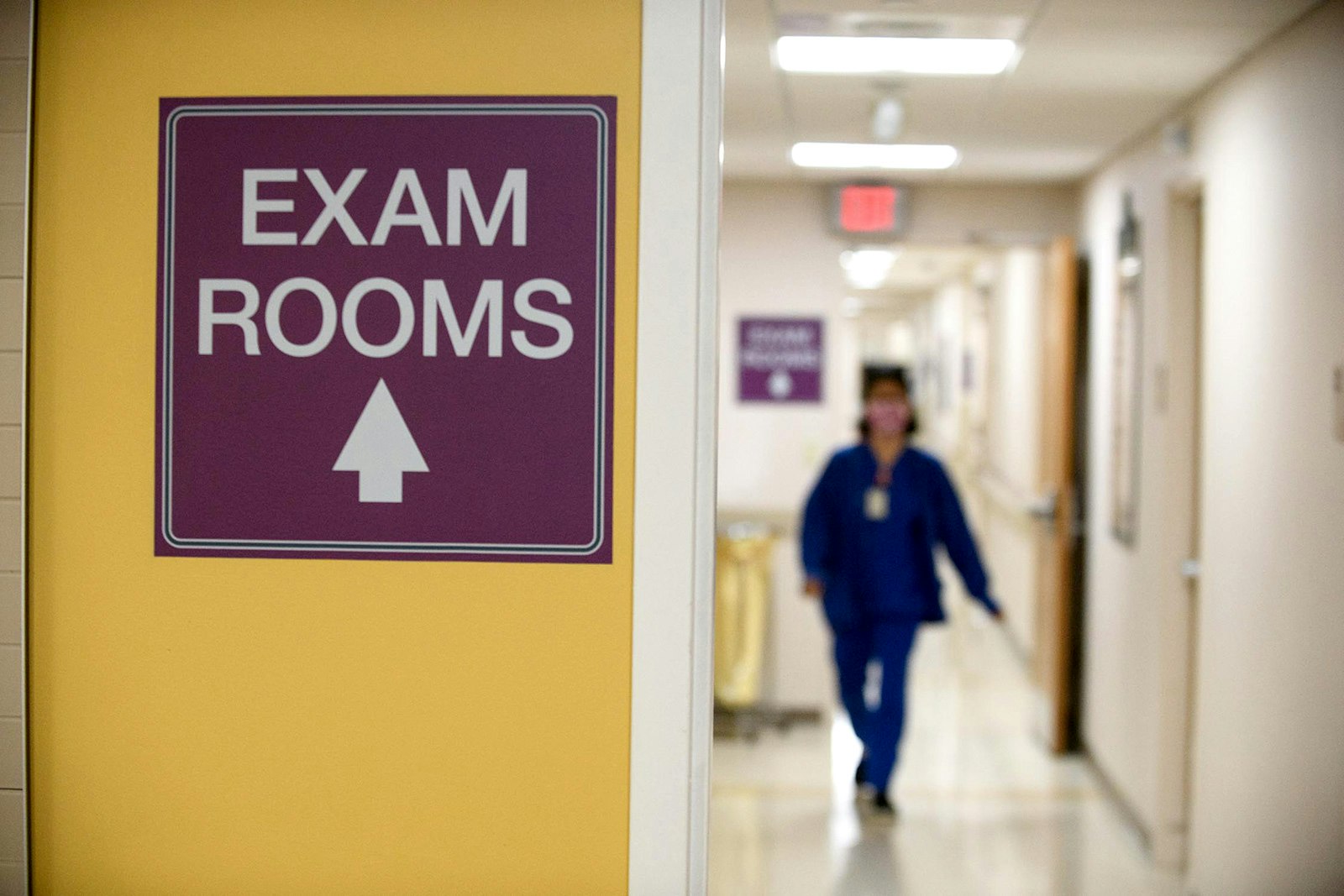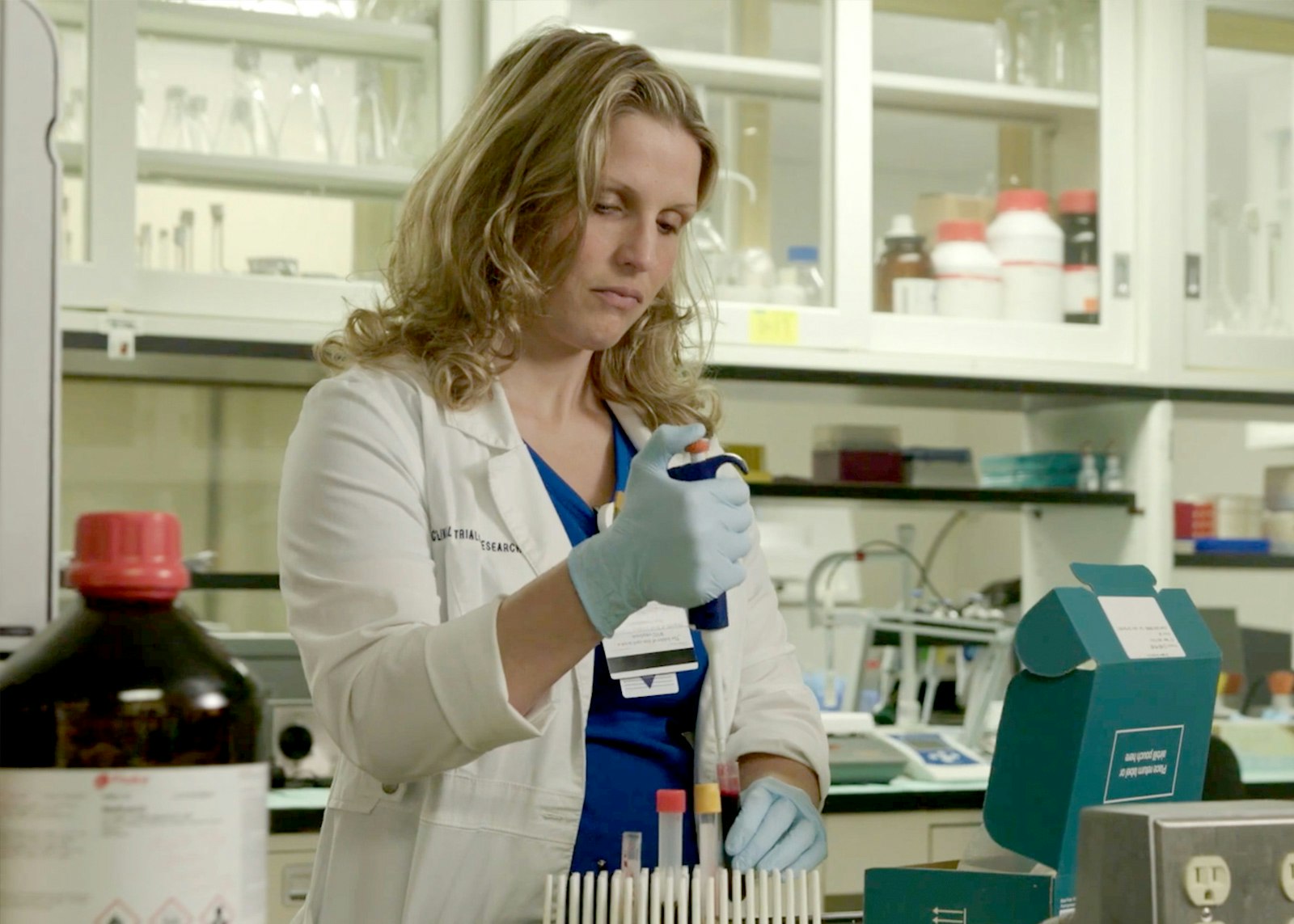Chimeric antigen receptor (CAR) T-cell therapy is cutting-edge immunotherapy that modifies a patient’s own cells to target and attack cancer cells. The Osborne Hematopoietic Malignancy and Cellular Therapy Program, the WVU Cancer Institute’s FACT Accredited Cellular Therapy Program, is currently the only site offering CAR T-cell therapy in West Virginia.
The CAR T-cell Therapy Process
Offered at the WVU Cancer Institute since 2018, CAR T-cell therapy is a groundbreaking treatment in which a cancer patient’s T-cells — white blood cells that play a key role in the body’s immune system response — are modified to become cancer “fighters.”
During this therapy, a patient’s T-cells are harvested from their blood in a process called apheresis, which is similar to donating blood. Once collected, the T-cells are then sent to a laboratory to be genetically modified. In the lab, the chimeric antigen receptor — a genetic receptor that binds to a specific protein in cancer cells — is added to the T-cells.
This modification “programs” the T-cells to bind to cancer cells and kill them.
Millions of the patients’ modified T-cells featuring CAR receptors — known as CAR T-cells — are grown in the lab. They are then infused back into the patient’s body via infusion, a process similar to a blood transfusion. After the CAR T-cells are infused, they continue to multiply, improving the patient’s ability to fight cancer over time.
Eligible Patients
Currently, the WVU Cancer Institute is certified to offer CAR T-cell therapy to patients with specific types of cancer, including:
- Acute lymphoblastic leukemia
- Diffuse large B-cell lymphoma
- Multiple myeloma
- Relapsed or refractory non-Hodgkin lymphoma
- Relapsed or refractory mantle cell lymphoma
Still very new, the CAR T-cell technology continues to evolve and improve. It is FDA-approved to treat additional types of blood cancer, like multiple myeloma, and perhaps, eventually, even solid cancer tumors once more research is completed.
While promising, CAR T-cell therapy is not intended as a first-line treatment. Rather, it is used primarily in patients who have not responded well to other more traditional therapies such as chemotherapy or radiation.
Considerations
CAR T-cell therapy is a potentially life-saving therapy option for patients whose initial treatments were not successful. Still, patients should speak with their oncologists to carefully weigh the risks and benefits of the procedure.
Many patients require chemotherapy before the infusion to reduce the likelihood that their new CAR T-cells will be attacked by their immune system. A hospitalization of at least a week or more following the infusion is also common.
Some patients develop serious side effects following CAR T-cell infusion, including high fevers, dangerously low blood pressure, and brain swelling or other neurologic complications. As a result, all CAR T-cell therapy patients are required to stay within 30 minutes of J.W. Ruby Memorial Hospital for the first 30 days following infusion. This allows our oncologists to treat patients promptly if side effects occur.
Providing Cutting-Edge Care
The American Society of Clinical Oncology recognized CAR T-cell therapy as the “Advance of the Year” in 2018. Innovations in immunotherapy are revolutionizing the way we fight cancer, and they will continue to shape cancer care into the future.
The WVU Cancer Institute is proud to be one of a limited number of treatment centers in the United States able to offer this leading-edge therapy to our patients.

